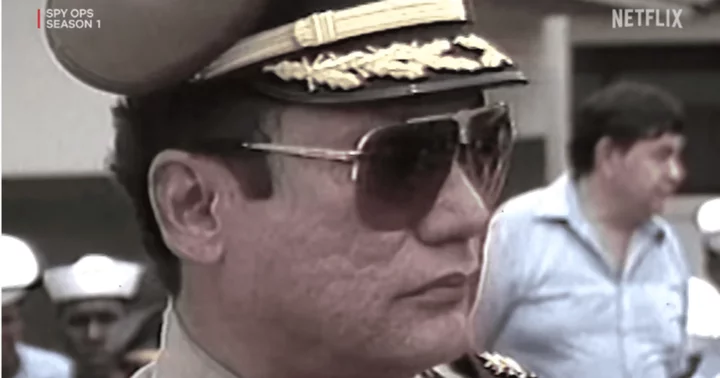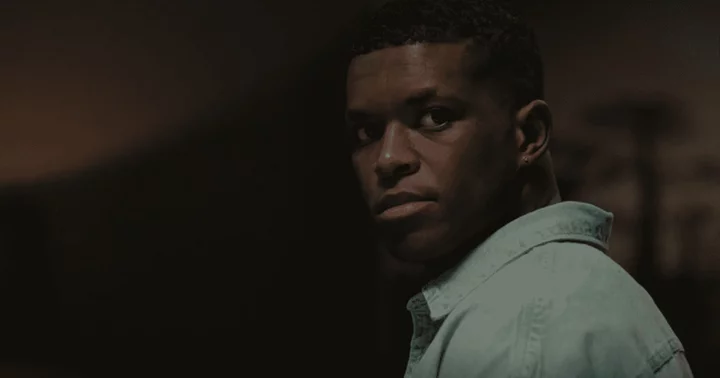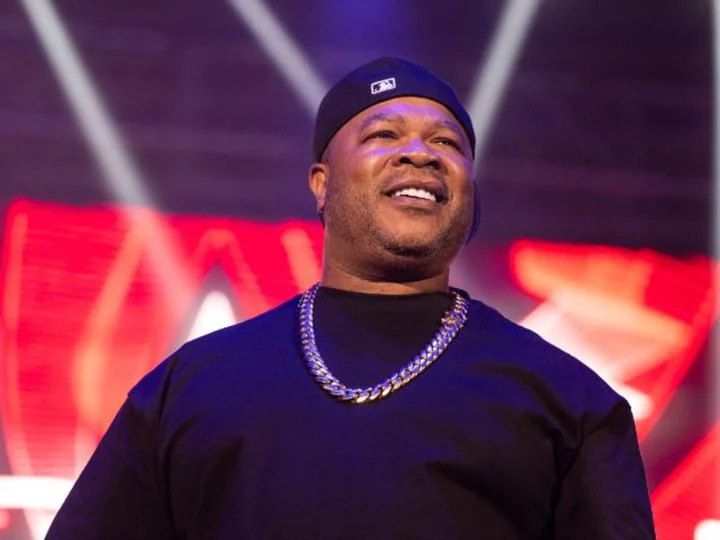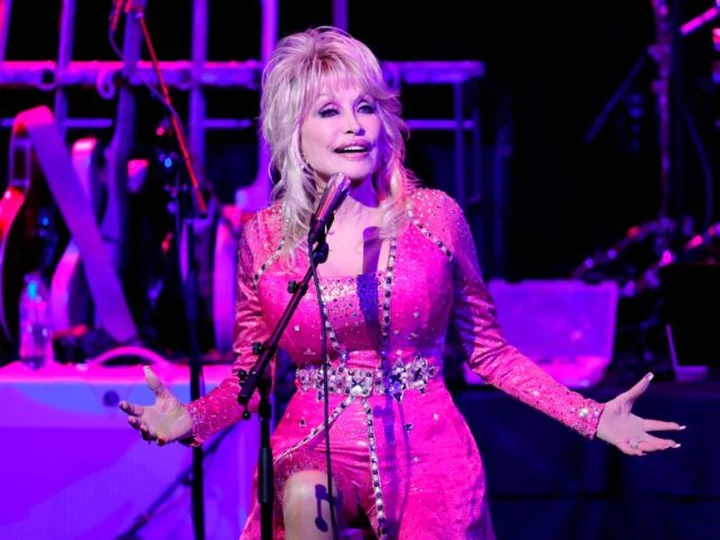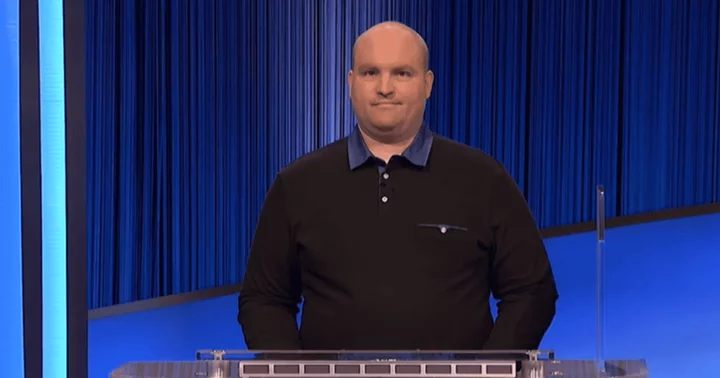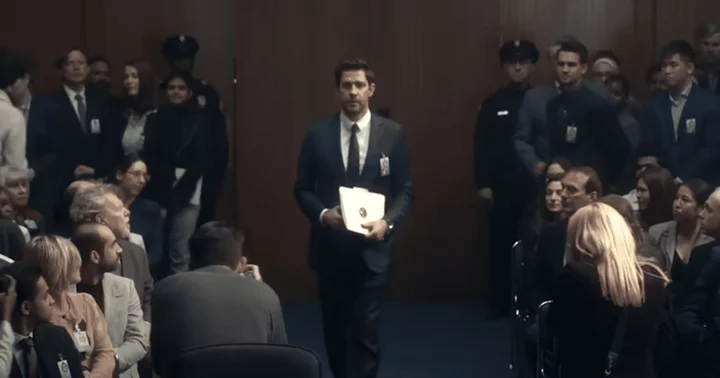LOS ANGELES, CALIFORNIA: A trailer for 'Spy Ops' highlights the CIA insider secrets that will feature in the new Netflix real crime series, which also stars MI6 spies.
The series, set to premiere on September 8, 2023, will provide viewers with an in-depth look at what led to Panamanian dictator Manuel Antonio Noriega's imprisonment.
Manuel, who became the country's de facto leader after being promoted to full general of the armed forces in 1983, had a tumultuous relationship with the US.
From a cooperative ally and informant for American drug and intelligence agencies, he became an illicit adversary, allegedly selling secrets to the US' political enemies in the Western Hemisphere, and tipping off drug cartels. It was frequently difficult to discern whose side he was on.
It was an uncomfortable hug, fitting the history of American and Panamanian ties since the United States built the Panama Canal in the early twentieth century. Before handing over the canal to Panama on December 31, 1999, the United States continued to operate it and rule a strip of land next to it.
The writers Richard M Koster and Guillermo Sanchez Borbon provided a shocking illustration of Manuel's double-dealing in their 1990 book 'In the Time of the Tyrants', an account of the Noriega years.
They said that while supplying information about Cuba to the US, Manuel offered Fidel Castro thousands of Panamanian passports at $5,000 apiece for use by Cuban secret operatives and probably spies from other Soviet bloc countries.
According to the writers, his unlawful earnings were at least $772 million. In the months leading up to his resignation, the White House estimated his personal worth at $200 million to $300 million.
American officials were allegedly aware of the duplicity but considered him vital to maintaining their control in Panama during a period of leftist revolutions in Central America. He served as an essential listening post in the region, for example.
However, he became increasingly confrontational, and by 1989, American tolerance had run out. Lawmakers in Washington, some of whom were concerned about the canal's impending transfer to Panama, began questioning him about his links to drug traffickers.
Opposition had increased in Panama, fueled partly by the torture and death of Dr Hugo Spadafora, a longstanding adversary who had publicly accused Manuel of colluding with Colombian drug traffickers in 1985.
Noriega became more aggressive against his opponents, unleashing his dreaded anti-riot forces — his "Dobermans" — on protesters.
In 1986, the United States Senate passed a resolution urging Panama to remove Noriega from the Panamanian Defense Forces pending an investigation into claims of corruption, election fraud, murder, and drug trafficking. Panama defaulted on its international loan payments the next year, when Congress cut off military and economic help, and its GDP plummeted by a stunning 20%.
Noriega was charged with federal drug trafficking and money laundering in Miami and Tampa in 1988. He was accused of turning Panama into a transportation hub for South American cocaine bound for the United States, and of allowing drug revenues to be buried in Panamanian banks.
The dictator replied by organizing anti-American demonstrations in Panama. He yelled to a throng, gripping a machete, "Not one step back!" The tagline began to appear on billboards all across Panama City.
In 1988, there was a failed coup. The next year, Noriega nullified the results of Panama's presidential election, increasing pressure on the US to intervene.
In 1989, following another attempted coup, he declared himself "maximum leader," and the National Assembly declared war on the United States.
Then, on December 16, 1989, in Panama City, Panamanian forces shot and killed one unarmed American soldier, injured another, and arrested and beat a third soldier whose wife they threatened with sexual assault.
Panamanian soldiers were soon overpowered as Noriega fled into hiding, only to resurface days later, on December 24, in the Vatican Embassy in Panama City.
At the time of the invasion, the Panamanian government estimated that several hundred soldiers and civilians had died, but some human rights organizations maintain that the death toll was much higher. Twenty-three American service members were killed, and more than 300 were injured.
American forces descended on the embassy, sparking a confrontation. For a period, American soldiers blasted heavy metal music (including Van Halen's 'Panama') to torture Noriega and prevent reporters with directional microphones from hearing military and Vatican leaders' conversations.
On January 3, 1990, he surrendered and was taken to Florida, leaving behind a new president sworn in on an American military installation and a new era for Panama.
Is Manuel Antonio Noriega still locked up?
Noriega was never free again. In April 1992, he was convicted and sentenced to 40 years in jail. He maintained throughout that the trial and allegations were a farce.
He was imprisoned in Florida, France, and eventually Panama, where he died at the age of 83.
Manuel Noriega was born impoverished on February 11, 1934, in Panama City, and was raised by foster parents.
Why did the US turn on Manuel Antonio Noriega?
The US invasion of Panama, codenamed Operation Just Cause, commenced in mid-December 1989, under George HW Bush's administration. The invasion's primary goal was to topple Panama's de facto ruler, General Manuel Noriega, who was sought by US authorities for racketeering and drug trafficking.
Why doesn't Panama have a military?
Panama is the second Latin American country (after Costa Rica) to disband its standing army, except for a tiny paramilitary security force. This was the consequence of an American invasion that deposed a military dictatorship that controlled Panama from 1968 until 1989.
What is the US policy on Panama?
According to its current policy, the United States' support of Panama strives to guarantee that Panama remains a safe, successful, and democratic republic that works with it as its primary partner in the area. The United States and Panama collaborate to achieve mutual objectives in citizen safety and the rule of law.
What is Netflix's 'Spy Ops' about?
'Spy Ops' on Netflix might be a moneymaker. The streaming giant released the teaser for its next espionage documentary series in early August, and there's little question it'll get the pulse pounding. Let's just say that it looks like every single episode will be a must-see for history aficionados.
The eight episodes of the series are: 'Taliban Spies', 'Operation Just Cause', 'Operation Jawbreaker', 'Operation Pimlico', 'Operation Wrath of God Part 1', 'The Plot to Kill the Pope', 'Operation Azorian', and 'Operation Wrath of God Part 2'.
'Spy Ops' will be available on Netflix from September 8.

